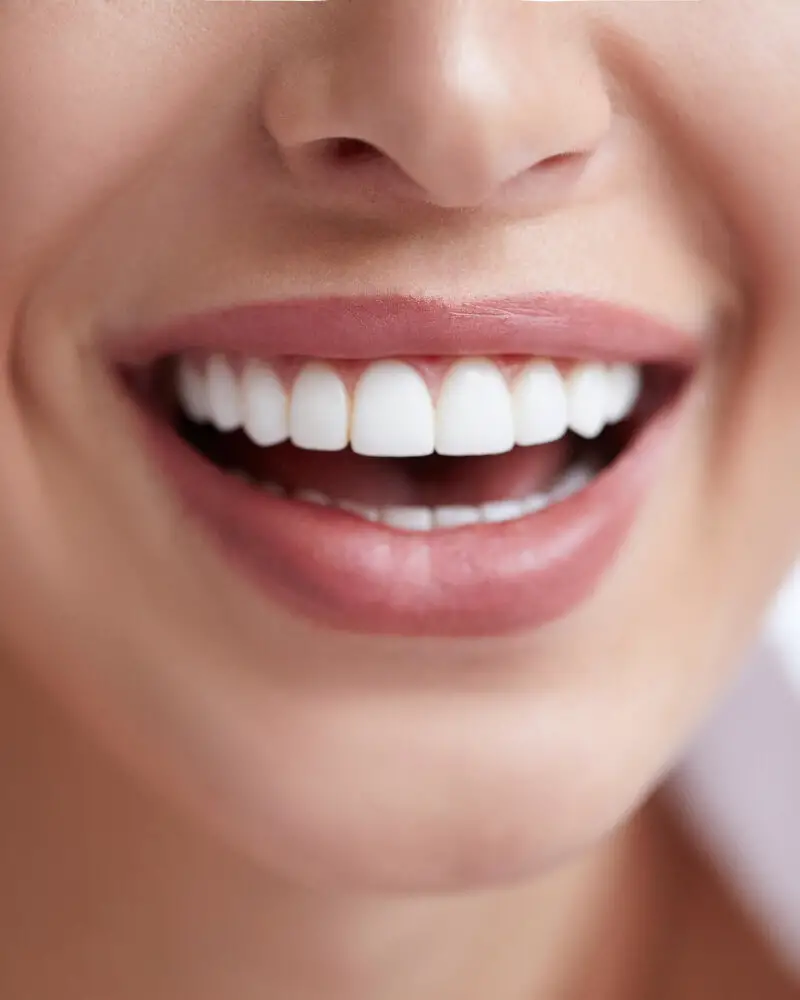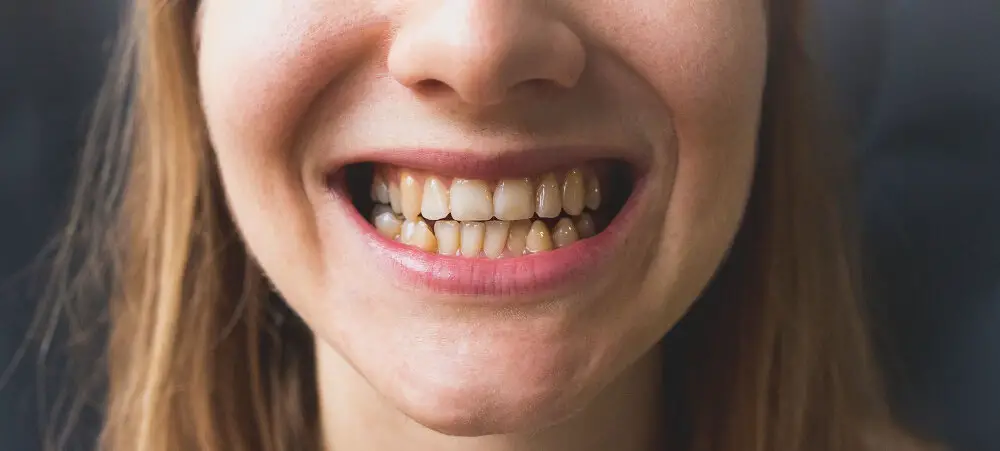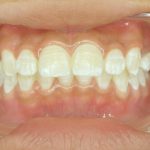Teeth Whitening: How Often Should You Do It for a Brighter Smile?

A bright and confident smile is a great asset that can improve one’s appearance and self-esteem. However, many factors can cause teeth to become discolored or stained, including age, genetics, lifestyle habits, and certain medications. Teeth whitening is a popular cosmetic dental procedure that can help remove surface stains and restore the natural whiteness of teeth. But how often should you do it to achieve the desired results without harming your teeth?The frequency of teeth whitening depends on various factors, such as the severity of the stains, the type of treatment used, and the individual’s oral health. While some people may only need occasional touch-ups to maintain their pearly whites, others may require more frequent treatments to achieve their ideal shade. In this article, we will explore the different options for teeth whitening, the pros and cons of each method, and how often you should do it to keep your smile bright and healthy.
Teeth whitening is a cosmetic dental procedure that involves the use of various products and techniques to remove stains and discoloration from the teeth. This procedure can help to enhance the appearance of the teeth, giving them a brighter and more attractive look. There are several different methods of teeth whitening, including in-office treatments, at-home treatments, and over-the-counter products. In-office treatments are usually more effective and can produce faster results, but they are also more expensive. At-home treatments and over-the-counter products are generally less expensive, but they may take longer to produce results and may not be as effective. It is important to consult with a dental professional to determine the best method of teeth whitening for your individual needs.
A brighter smile is not just a cosmetic concern but also a key factor in boosting one’s self-confidence and overall well-being. A set of pearly whites can make a person look younger, more attractive, and approachable. It can also positively impact social and professional relationships, as people with a bright smile are perceived as more trustworthy and successful. Moreover, having a brighter smile can motivate individuals to maintain good oral hygiene habits, such as regular brushing and flossing, which can prevent dental problems and promote optimal oral health. With today’s advancements in teeth whitening technology, achieving a brighter smile has become easier and more accessible than ever before.
Teeth whitening has become increasingly popular in recent years, with many people striving for a brighter, more confident smile. However, it’s important to remember that teeth whitening is not a one-size-fits-all solution, and there is no set timeline for how often you should do it. Factors such as lifestyle habits, genetics, and the method of whitening used can all impact the frequency at which you should whiten your teeth. Generally, it’s recommended to wait at least six months between teeth whitening treatments to avoid damaging the enamel and causing sensitivity. It’s also important to maintain good oral hygiene habits such as brushing twice daily and flossing to keep your teeth healthy and white. Ultimately, it’s best to consult with your dentist to determine the best teeth whitening schedule for your individual needs.
How Teeth Whitening Works

Teeth whitening is a popular cosmetic dental procedure that involves removing stains and discoloration from the teeth to achieve a brighter, more attractive smile. The process of teeth whitening works by using a peroxide-based solution, which is applied directly to the teeth. This solution works by breaking down the stains on the teeth, allowing the natural whiteness of the teeth to shine through. The solution is usually applied using a custom-fitted tray that fits over the teeth, or through a specialized light that activates the whitening agent. There are several factors that can contribute to teeth discoloration, including certain foods and beverages, smoking, and aging. Teeth whitening is an effective way to counteract these factors and achieve a brighter, more youthful-looking smile. However, it is important to note that teeth whitening should be done in moderation and under the guidance of a dental professional. Overuse of teeth whitening products can lead to tooth sensitivity and other oral health issues, so it is important to follow the recommended guidelines for frequency and duration of treatment.
Teeth whitening is a process of removing stains and discoloration from the teeth. The process involves the use of a bleaching agent, usually hydrogen peroxide, which breaks down the stains and discoloration on the enamel. There are various methods of teeth whitening, including in-office treatments, at-home kits, and natural remedies, each with its own advantages and disadvantages. In-office treatments are the most effective and fastest method of teeth whitening, but they can be costly. At-home kits are more affordable and convenient, but they may not be as effective and can cause sensitivity. Natural remedies, such as oil pulling and brushing with baking soda, are the safest but may take longer to show results. It is important to consult with a dentist before undergoing any teeth whitening treatment to ensure safety and effectiveness.
There are various types of teeth whitening products available in the market that can help you achieve a brighter smile. One of the most common types is toothpaste that contains whitening agents like hydrogen peroxide or baking soda. Whitening strips are also popular and can be applied directly to the teeth for a specified amount of time. Another option is to use whitening gels or trays, which can be customized to fit your teeth and applied at home. In-office treatments like laser whitening or bleaching are also available and offer more immediate and dramatic results. However, it is important to consult with your dentist before using any teeth whitening product to ensure it is safe and effective for your specific dental needs.
Teeth whitening treatments can be highly effective in improving the appearance of your smile. The effectiveness of each type of treatment can vary depending on the individual and the severity of tooth discoloration. In-office treatments performed by a dental professional can provide the most dramatic results in the shortest amount of time, but they can also be the most expensive. At-home treatments, such as whitening toothpaste, strips, and trays, can also be effective, but may require longer treatment times and multiple applications. It is important to consult with your dentist to determine the best teeth whitening option for your specific needs and to ensure that you are whitening your teeth safely and effectively.
Factors to Consider Before Whitening Your Teeth

Before deciding to whiten your teeth, it is important to consider several factors. First and foremost, it is essential to evaluate the health of your teeth and gums. If you have any existing dental problems, such as cavities or gum disease, it is recommended that you address these issues before proceeding with teeth whitening. Whitening agents can cause sensitivity or even damage to already weakened teeth or gums. Therefore, it is better to have a consultation with your dentist before starting any whitening treatment. Another important factor to consider before whitening your teeth is the type of whitening treatment you want to undergo. There are various options available for teeth whitening, such as at-home whitening kits, in-office whitening treatments, and natural remedies. Each method has its own advantages and disadvantages, and the results may vary depending on the individual. It is important to research and consult with your dentist to determine the most suitable method for your specific needs and expectations. Additionally, it is essential to follow the instructions carefully and not overuse the whitening products, as this can cause harm to your teeth and gums.
When it comes to dental health concerns, teeth whitening is a popular cosmetic procedure that many people seek. However, it’s important to understand that overdoing it can cause damage to your teeth and gums. Teeth whitening involves chemicals that break down the stains on your teeth, but excessive use of these chemicals can result in sensitivity and irritation. It’s recommended to consult with your dentist before starting any teeth whitening treatment and to follow their instructions carefully. Additionally, maintaining good dental hygiene practices such as brushing and flossing regularly, avoiding sugary foods and drinks, and going for regular dental check-ups can help keep your teeth healthy and bright.
Sensitivity levels are a crucial factor to consider when it comes to teeth whitening. Some people may experience increased sensitivity in their teeth and gums after undergoing a whitening treatment. It is essential to understand that the frequency of teeth whitening treatments should be determined by the individual’s sensitivity levels. If you experience no sensitivity or discomfort, you might consider whitening your teeth every six months. However, if you experience sensitivity or discomfort, it is recommended to wait at least six months before undergoing another treatment. Moreover, it is essential to consult with your dentist to determine the best course of action for your individual needs. In summary, sensitivity levels play a significant role in determining the frequency of teeth whitening treatments, and it is critical to consider them to ensure a brighter smile without discomfort.
Existing dental restorations are a common phenomenon in modern dentistry. These restorations are used to repair damaged or decayed teeth and improve their functionality and appearance. They can be made from a variety of materials, including metals, ceramics, and composites. Some of the most common types of dental restorations include fillings, crowns, bridges, and implants. Although these restorations can be long-lasting and effective, they may also require maintenance and replacement over time. Therefore, it is important to consult with a dentist regularly to ensure that your dental restorations are in good condition and functioning properly. Additionally, dental restorations may require special consideration when it comes to teeth whitening, as certain materials may not respond well to whitening agents or may require alternative methods of whitening.
Personal preferences and goals play a crucial role in determining how frequently one should whiten their teeth. For some individuals, achieving a dazzling white smile is a top priority, while others may be content with a more natural shade. Factors such as age, lifestyle habits, and overall oral health can also affect one’s decision to whiten their teeth. It’s important to consult with a dental professional to determine the best course of action for your individual needs. While some may choose to undergo a professional teeth whitening treatment every six months, others may opt for at-home whitening kits or natural remedies. Ultimately, the decision to whiten your teeth and how often to do so should be based on your personal preferences and goals.
How Often Should You Whiten Your Teeth?

Achieving a bright, dazzling smile is a common goal for many people, and teeth whitening is a popular solution for achieving this. However, one common question that many people have is, how often should you whiten your teeth? The answer to this question largely depends on the individual, as well as the method of teeth whitening used. For those who opt for professional teeth whitening treatments, it is typically recommended that they undergo the treatment every six months to a year to maintain the results. This is because professional teeth whitening treatments are typically more effective and longer-lasting than at-home whitening methods. On the other hand, those who use at-home teeth whitening kits may need to touch up their results more frequently, as the results are often not as long-lasting. It is generally recommended that individuals wait at least six months between at-home teeth whitening treatments to avoid damaging the enamel of their teeth. Overall, the frequency with which you should whiten your teeth depends on a variety of factors, including the method of teeth whitening used, the individual’s oral health, and their personal preferences. It is always best to consult with a dental professional before beginning any teeth whitening treatment to ensure that it is safe and effective. With proper care and attention, achieving and maintaining a bright, confident smile is definitely possible.
Dentists recommend that teeth whitening should be done in moderation to avoid damaging the teeth. Overuse of whitening products can lead to tooth sensitivity, enamel erosion, and gum irritation. It is important to follow the instructions carefully and not exceed the recommended frequency of use. Dentists also advise against using home remedies, such as baking soda or lemon juice, as they can cause more harm than good. Instead, they suggest seeking professional teeth whitening services from a licensed dental professional. Additionally, maintaining good oral hygiene practices, such as regular brushing and flossing, can help prevent the need for frequent teeth whitening.
The frequency of teeth whitening is affected by a variety of factors, including the type of whitening method used, the intensity of the whitening treatment, and individual habits and lifestyle choices. For instance, those who consume foods and drinks that are known to stain teeth, such as coffee, tea, and red wine, may need to whiten their teeth more often than those who avoid such items. Additionally, individuals who smoke or use tobacco products may need to whiten their teeth more frequently due to the adverse effects of nicotine and tar on tooth enamel. Furthermore, those who have previously undergone teeth whitening may require less frequent treatments than those who are new to the process. It is recommended to consult with a dental professional to determine the appropriate frequency of teeth whitening based on individual circumstances.
Overwhitening, also known as excessive teeth whitening, can have several negative effects on your dental health. This occurs when you whiten your teeth too frequently or use a product that is too strong, causing your teeth to become overly sensitive, translucent, and even discolored. Overwhitening can also weaken the enamel, making it easier for cavities and decay to develop. In some cases, it can also cause gum irritation and inflammation. It is important to follow the recommended guidelines for teeth whitening and consult with a dentist to determine what type and frequency of whitening is safe for your teeth.
Tips for Maintaining a Brighter Smile

Maintaining a brighter smile is not only essential for good oral health, but it can also boost your confidence and self-esteem. There are several tips that you can follow to maintain a brighter smile. Firstly, always brush your teeth twice a day, preferably after meals, using fluoride toothpaste. This helps to remove the plaque and bacteria that cause tooth decay and discoloration. Flossing once a day is also important to remove any food particles stuck between your teeth. Secondly, avoid or limit your intake of foods and drinks that can stain your teeth, such as coffee, tea, red wine, and dark-colored fruits and vegetables. If you do consume these items, rinse your mouth with water afterwards to minimize staining. Additionally, quit smoking or using tobacco products, as they can cause severe discoloration of the teeth and contribute to the development of gum disease. In conclusion, maintaining a bright smile requires consistent effort and discipline. Brushing and flossing regularly, avoiding staining foods and drinks, and quitting smoking or tobacco products are all essential steps towards achieving a brighter, healthier smile. Remember, a bright smile not only enhances your appearance but also boosts your confidence and self-esteem.
Maintaining a daily dental care routine is essential for healthy teeth and gums, and is the foundation for a brighter smile. Brushing your teeth twice a day with fluoride toothpaste, flossing at least once a day, and rinsing with mouthwash can help prevent plaque buildup and tooth decay. Along with these basic measures, it’s important to limit sugary and acidic foods and beverages, and to replace your toothbrush every three to four months. Additionally, using a whitening toothpaste or whitening strips can help remove surface stains and brighten your smile, but it’s crucial to follow the instructions carefully and not overdo it. By following these steps, you can maintain good oral hygiene and achieve a brighter, healthier smile.
When it comes to teeth whitening, some foods and drinks should be avoided to maintain a bright smile. Dark-colored beverages like coffee, tea, and red wine can stain teeth over time, while acidic drinks like citrus juices and soda can erode the enamel and make teeth more prone to discoloration. In addition, certain foods like berries, tomato sauce, and soy sauce can also cause staining. It’s not necessary to completely eliminate these items from your diet, but it’s important to consume them in moderation and rinse your mouth with water afterward.
Regular dental cleanings and checkups are an essential component of maintaining optimal oral health. Not only do these visits provide a thorough cleaning of the teeth and gums, but they also allow for early detection and treatment of any potential issues before they become more serious problems. It is recommended that individuals visit the dentist at least twice a year for these cleanings and checkups, although those with certain dental conditions or a history of dental problems may need to go more frequently. By staying on top of your dental health with regular visits, you can ensure that your smile stays bright and healthy for years to come.
The article \Teeth Whitening: How Often Should You Do It for a Brighter Smile\ discusses the different factors that can affect the frequency of teeth whitening. It highlights the importance of consulting with a dentist before starting any whitening regimen, as well as the need to consider the type of whitening product being used. The article also emphasizes the need to balance the desire for a brighter smile with the potential risks of over-whitening, such as tooth sensitivity or damage to enamel. Ultimately, the frequency of teeth whitening will vary depending on individual factors such as diet, lifestyle, and oral health, and should be approached with caution and guidance from a dental professional.
After considering all the factors, it is recommended to whiten your teeth every 6-12 months. However, this timeframe can vary depending on your lifestyle habits, diet, and oral hygiene routine. If you consume staining foods and drinks frequently or smoke, you may need to whiten your teeth more frequently. On the other hand, if you maintain a healthy lifestyle and follow a strict oral hygiene routine, you may be able to wait longer between treatments. It is also essential to consult with your dentist to determine the best whitening method for your teeth and to ensure that there are no underlying dental issues that may affect the whitening process. Remember to always follow the instructions provided by your dentist or whitening product manufacturer to avoid damaging your teeth and gums.
It is essential to consult with a dentist before starting a teeth whitening regimen. A dentist can assess the condition of your teeth and recommend the best whitening method suitable for your oral health. Some individuals may have sensitive teeth or gum problems that can worsen with certain whitening treatments. In such cases, a dentist can suggest alternative methods or prescribe desensitizing agents to minimize discomfort during the process. Moreover, dentists can monitor the progress and effectiveness of the whitening treatment and provide follow-up care to maintain the results. Consulting with a dentist before whitening your teeth can prevent any potential damage to your teeth and gums and ensure a safe and successful outcome.
Conclusion

In conclusion, teeth whitening can be a great way to improve the appearance of your smile and boost your confidence. However, it is important to remember that overdoing it can lead to negative consequences such as tooth sensitivity or even damage. It is recommended to consult with a dental professional to determine the best whitening method for your individual needs and to follow their guidance on frequency. Additionally, maintaining good oral hygiene habits such as regular brushing and flossing can also help keep your teeth looking bright and healthy. Remember, a bright smile is not just about appearance, but also about taking care of your overall oral health.







